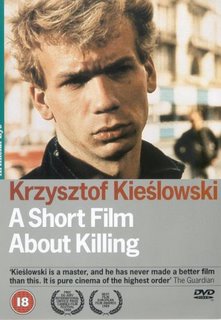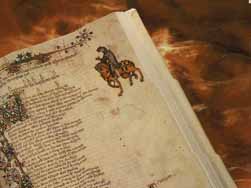
Good Night, and Good Luck is the story of the confrontation between CBS News anchor man Edward R. Morrow (David Strathairn) and Sen. Joseph McCarthy. These witch hunts are well known; those familiar with Arthur Miller's work will know how this period affected him and his work: The Crucible, for example.
The film does not show anyone being dragged off and thrown in jail. Instead, it depicts a group of journalists at CBS trying to come to terms Sen. McCarthy's one man crusade against Communism seen in every corner of independent thought throughout the United States. In the face of the seemingly monolithic power of government Edward R. Morrow decides to broadcast a series of in-depth examinations of the kind of mock-trials McCarthy was engaged in and questions their legitimacy and legality. I wouldn't describe is as a hatchet job on the junior member from Wisconsin, but some will.
It's a powerful and timely film. It's wonderfully acted - Strathairn is tense and righteous throughout in equal measure, and the direction is sure and satisfying. Robert Downey Jr. seems to be staying on the straight and narrow and showing that he can act. Clooney is curiously set back in the film, he doesn't overpower the screen with his presence and allows the others their space.
If, as one critic put it, one feels preached to, it is because this is a film with a message. So get it. The Left will love it, the Right will hate it. The usual idiotic debates will rage, trying to strangle appreciation and independence, art and beauty. Perhaps there is no hope for us. I left the cinema sad and worried. I enjoyed it immensly, but couldn't help feeling plus ça change plus c'est la meme chose. The danger is most certainly within. Not without.
The film does not show anyone being dragged off and thrown in jail. Instead, it depicts a group of journalists at CBS trying to come to terms Sen. McCarthy's one man crusade against Communism seen in every corner of independent thought throughout the United States. In the face of the seemingly monolithic power of government Edward R. Morrow decides to broadcast a series of in-depth examinations of the kind of mock-trials McCarthy was engaged in and questions their legitimacy and legality. I wouldn't describe is as a hatchet job on the junior member from Wisconsin, but some will.
It's a powerful and timely film. It's wonderfully acted - Strathairn is tense and righteous throughout in equal measure, and the direction is sure and satisfying. Robert Downey Jr. seems to be staying on the straight and narrow and showing that he can act. Clooney is curiously set back in the film, he doesn't overpower the screen with his presence and allows the others their space.
If, as one critic put it, one feels preached to, it is because this is a film with a message. So get it. The Left will love it, the Right will hate it. The usual idiotic debates will rage, trying to strangle appreciation and independence, art and beauty. Perhaps there is no hope for us. I left the cinema sad and worried. I enjoyed it immensly, but couldn't help feeling plus ça change plus c'est la meme chose. The danger is most certainly within. Not without.









